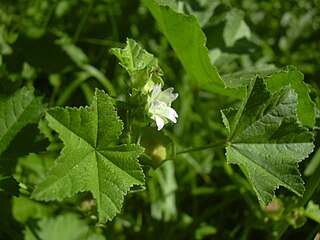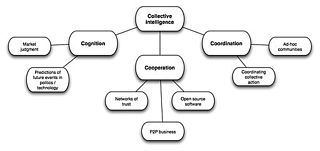Sensu is a Latinate word used within set phrases to indicate the sense of another word.
Sensu may also refer to:
- A Japanese folding fan
- Cinsaut, a wine grape
Sensu is a Latinate word used within set phrases to indicate the sense of another word.
Sensu may also refer to:

Actinopterygii, members of which are known as ray-finned fish or actinopterygians, is a class of bony fish that comprise over 50% of living vertebrate species. They are so called because of their lightly built fins made of webbings of skin supported by radially extended thin bony spines called lepidotrichia, as opposed to the bulkier, fleshy lobed fins of the sister class Sarcopterygii. Resembling folding fans, the actinopterygian fins can easily change shape and wetted area, providing superior thrust-to-weight ratios per movement compared to sarcopterygian and chondrichthyian fins. The fin rays attach directly to the proximal or basal skeletal elements, the radials, which represent the articulation between these fins and the internal skeleton.

Duomo is an Italian term for a church with the features of, or having been built to serve as, a cathedral, whether or not it currently plays this role. Monza Cathedral, for example, has never been a diocesan seat and is by definition not a cathedral. On the other hand, the city of Trevi no longer has a bishop, although it once did, and the erstwhile cathedral of Emilianus of Trevi is now a mere church. By contradistinction, the Italian word for a cathedral sensu stricto is cattedrale. There is no direct translation of "duomo" into English, leading to many such churches being erroneously called "cathedral" in English, regardless of whether the church in question hosts a bishop.

Cimolodonta is a clade of multituberculate mammals that lived from the Cretaceous to the Eocene. They probably lived something of a rodent-like existence until their ecological niche was assumed by true rodents. The more basal multituberculates are found in a different suborder, "Plagiaulacida", a paraphyletic group containing all non cimolodontan multituberculates.
WP or wp may refer to:

Malvaceae, or the mallows, is a family of flowering plants estimated to contain 244 genera with 4225 known species. Well-known members of economic importance include okra, cotton, cacao, roselle and durian. There are also some genera containing familiar ornamentals, such as Alcea (hollyhock), Malva (mallow), and Tilia. The genera with the largest numbers of species include Hibiscus, Pavonia, Sida, Ayenia, Dombeya, and Sterculia.
In the scientific name of organisms, basionym or basyonym means the original name on which a new name is based; the author citation of the new name should include the authors of the basionym in parentheses. The term "basionym" is used in both botany and zoology. In zoology, alternate terms such as original combination or protonym are sometimes used instead. Bacteriology uses a similar term, basonym, spelled without an i.
An undergraduate degree is a colloquial term for an academic degree earned by a person who has completed undergraduate courses. In the United States, it is usually offered at an institution of higher education, such as a college or university. The most common type of these undergraduate degrees are associate degree and bachelor's degree. Bachelor's degree typically takes at least three or four years to complete. In some other educational systems, undergraduate education is post-secondary education up to the level of a master's degree; this is the case for some science courses in Britain and some long-cycle medicine courses in Europe. These degrees can be categorised as basic or first professional degrees.
Douch is an English-language surname meaning German.
In linguistics, a word sense is one of the meanings of a word. For example, a dictionary may have over 50 different senses of the word "play", each of these having a different meaning based on the context of the word's usage in a sentence, as follows:
We went to see the playRomeo and Juliet at the theater.
The coach devised a great play that put the visiting team on the defensive.
The children went out to play in the park.

Bandicota is a genus of rodents from Asia known as the bandicoot rats. Their common name and genus name are derived from the Telugu language word pandikokku (పందికొక్కు). DNA studies have found the group to be a monophyletic clade sister to the radiation of Molucca and Australian Rattus species as part of the paraphyletic Rattussensu lato.
Sensu is a Latin word meaning "in the sense of". It is used in a number of fields including biology, geology, linguistics, semiotics, and law. Commonly it refers to how strictly or loosely an expression is used in describing any particular concept, but it also appears in expressions that indicate the convention or context of the usage.

Colletotrichum is a genus of fungi that are symbionts to plants as endophytes or phytopathogens. Many of the species in this genus are plant pathogens, but some species may have a mutualistic relationship with hosts.
Sensus fidei, also called sensus fidelium is, according to the Catechism of the Catholic Church, "the supernatural appreciation of faith on the part of the whole people, when, from the bishops to the last of the faithful, they manifest a universal consent in matters of faith and morals." Quoting the document Lumen gentium of the Second Vatican Council, the Catechism adds: "By this appreciation of the faith, aroused and sustained by the Spirit of truth, the People of God, guided by the sacred teaching authority,... receives... the faith, once for all delivered to the saints. ...The People unfailingly adheres to this faith, penetrates it more deeply with right judgment, and applies it more fully in daily life." The foundation of this can be found in Jesus' saying in Matthew 16:18 that "the gates of Hell will not prevail against it," where "it" refers to the "Church", that is, the Lord's people that carries forward the living tradition of essential beliefs throughout history, with the Bishops overseeing that this tradition does not pursue the way of error.
Scientific terminology is the part of the language that is used by scientists in the context of their professional activities. While studying nature, scientists often encounter or create new material or immaterial objects and concepts and are compelled to name them. Many of those names are known only to professionals. However, due to popularization of science, they gradually become part of common languages. Several categories of scientific terminology can be distinguished.

Common sense is sound, practical judgement concerning everyday matters, or a basic ability to perceive, understand, and judge in a manner that is shared by nearly all people.

The Limacoidei is a taxonomic infraorder of air-breathing land snails, semislugs and slugs, terrestrial pulmonate gastropod molluscs in the suborder Helicina
RoboBraille is a web and email service capable of converting documents into a range of accessible formats including Braille, mp3, e-books and Daisy. The service can furthermore be used to convert otherwise inaccessible documents such as scanned images and pdf files into more accessible formats. RoboBraille has been in operation since 2004 and currently serves thousands of user requests each month from users around the world. The service is available for free for strictly individual, non-commercial use. Institutional use by academic institutions is available through SensusAccess.
Polypodiidae may refer to:
Magnoliidae is a botanical subclass name; it may refer to:

Rubus fruticosus L. is the ambiguous name of a European blackberry species in the genus Rubus in the rose family. The name has been interpreted in several ways: